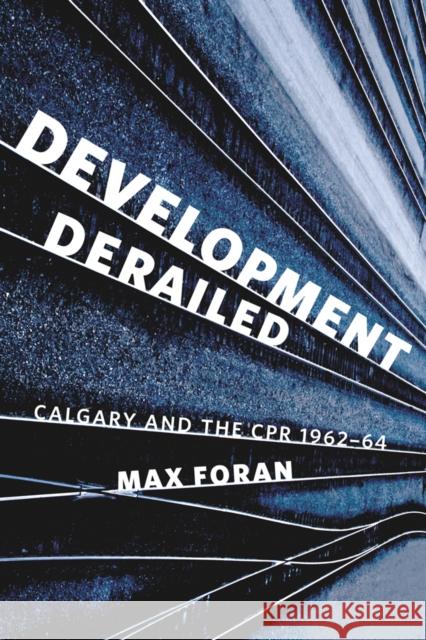Development Derailed: Calgary and the Cpr, 1962-64 » książka
Development Derailed: Calgary and the Cpr, 1962-64
ISBN-13: 9781927356081 / Angielski / Miękka / 2013 / 260 str.
In June of 1962, the Canadian Pacific Railway announced a proposalto redevelop part of its reserved land in the heart of downtownCalgary. In an effort to bolster its waning revenues and to redefineits urban presence, the CPR proposed a multimillion dollar developmentproject that included retail, office, and convention facilities, alongwith a major transportation centre. With visions of enhanced taxrevenues, increased land values, and new investment opportunities, Calgary's political and business leaders greeted the proposalwith excitement. Over the following year, the scope of the projectexpanded, growing to a scale never before seen in Canada. The plan tookofficial form through an agreement between the City of Calgary and therailway company to develop a much larger area of land and to reroute orremove the railway tracks from the downtown area--a grand designfor reshaping Calgary's urban core. In 1964, amid bickering and afailed negotiating process, the project came to an abrupt end. Whatcaused this promising partnership between the nation's leadingcorporation and the burgeoning city of Calgary to collapse?
What, in economic terms, was perceived to be a win-win situation forboth parties fell prey to a conflict between corporate rigidity and anunorganized, ill-informed, and over-enthusiastic civic administrationand city council. Drawing on the private records of Rod Sykes, theCPR's onsite negotiator and later Calgary's mayor, Foranunravels the fascinating story of how politics ultimately underminedpromise.
Max Foran is a Professor in the Faculty ofCommunication and History at the University of Calgary. He has writtenextensively on various western Canadian urban, rural, and culturaltopics, most recently on ranching, urban growth, and sustainability.











